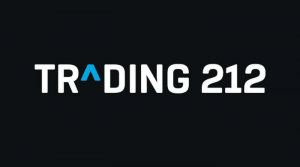Payment processing gets even more critical: German bank executive speaks out
Payment processing has long been a difficult proposition for FX brokers. It may well be about to get better

Within the retail FX business, the ability to securely process client payments to and from brokerages is a major consideration, and a key business area in which there has been a constriction of options available due to the merchant services firms – namely Visa and Mastercard – having for many years looked down their noses at the retail FX businesses that are not based in the US, UK or Australia.
Payment processing and the ability to receive deposits from traders and pay withdrawals seamlessly is a key operational factor for most retail FX companies, however due to the activities of the small, retail industry specific entities in Israel and Cyprus, this has become a very difficult market for bona fide brokers.
Today, a Deutsche Bundesbank executive has called on the banking sector to develop a pan-European mobile payments platform capable of competing with systems from Big Tech giants from the US and China.
The comments come from an interview with Bundesbank board member Burkhard Balz, first published in Handelsblatt and reprinted on the central bank’s main Website.
Quizzed on the idea of a European solution, Balz says: “Here in Europe, we need to prevent a situation from arising in which American and Chinese payment systems are all we have left to choose between. Highly successful firms from the United States and China are looking to carve out a huge chunk of the European market. Hence the desire to forge a payments solution with a clear-cut European ‘brand’.
“Chinese and US players are also saying that a race is under way here in Europe in which market domination is probably up for grabs. If you ask me, Europe needs to get off the sidelines and take a stance.”
In order to achieve this, Balz says the core EU makets of Germany, France, Spain and Italy need to come together and begin work on establishing a pan-European platform.
Similar noises have emerged from the European Central Bank in the payment cards market, which is dominated by US schemes Mastercard and Visa. The ECB has long-floated the idea of a home-grown cross-border scheme capable of taking on the big brands, but so far without success.
“Of course there are cases where the results have fallen short of expectations,” says Balz. “But I’m talking about defining our final destination. Take a look at how credit card providers have increased their share of Europe’s payments market, and you’ll see a strong increase in concentration. Do we want to sit back and just let that continue? Or wouldn’t it be better to at least try to forge initiatives of our own in response?”
Balz is wary of the efforts of US big tech firms like Apple and Google, and Chinese behemoths such as Alibaba and TenCent, moving to establish their own systems as the dominant platforms throughout the world.
He is right. Two years ago, FinanceFeeds met with TenCent executives in China, who explained that WeChat has become a vital tool in use among all introducing brokers not just for communication with their partners and referral agents, but also as a payment channel which is far larger than that offered by Western payment providers.
FinanceFeeds has met with introducing brokers across the country which have portfolios of over $250 million under management, all of whom use WeChat as the main source of media as well as connection with their customers. That particular discussion highlighted that introducing brokers are reliant on developing massive WeChat networks, regardless of size or amount of assets under management, with payment solutions being integral to the system.
Mr Belz said “They have every right to make that attempt, but equally, we in Europe have every right to create our own brand. We shouldn’t just be a spectator in a market that’s as important as this. It would make sense for European players to pool their resources as a way of competing eye to eye with global rivals. Our role to begin with will be that of a moderator.”
The mere notion that major banks are beginning to look closely at payments is of great interest, and should be a good sign for FX brokerages.
Last week, FinanceFeeds reported that US banking giant JP Morgan is boosting its real-time payments offering by launching Sepa Instant in Europe.
Interestingly, JP Morgan is the second largest global interbank FX dealer by market share, the first being non-bank market maker XTX Markets placing JP Morgan as the bank with the largest FX dealing market share in the world at 10.49% of all FX order flow.
Therefore, if JP Morgan plays this correctly, the firm’s ability to interact with its own customers, those being OTC derivatives firms, on payment processing would be a very welcome development for retail FX firms and their service providers.
Payment channels and merchant services agreements have been a very challenging component of the entire electronic trading sector for many years now, with a substantial number of firms from outside the industry having been unwilling to provide payment processing services to online tradiing entities, often resulting in retail brokerages having to capitulate to the appalling and unprofessional channels provided by Israel and Cyprus based affiliate type payment vendors, most of which do not have a genuine system to offer, their roots being in affiliate marketing and binary options instead of genuine electronic payment provision.
The move by JP Morgan brings into effect the bank’s real-time payment capabilities in USD, GBP and EUR and is “another step towards offering real-time payments around the globe,” says Sungmahn Seo, MD, head of Emea payments and FX for JP Morgan Treasury Services.
Real time payments from a genuine banking institution, especially one that understrands our business so comprehensively, has to be a great thing. For example, although JP Morgan has not suggested at this early stage during the product’s life cycle that it would do this, providing a real time payments solution as part of a prime brokerage agreement to a prime of prime, which could then offer a holistic payment and liquidity solution to brokers would be a genuine FX industry breakthrough.
If the banks continue to look at the payments sector seriously, it may well be a good time for the leather jacket-clad, bryl cream laden Mediterranean no-names to bow out and make way for the professionals, which is what our industry deserves.









